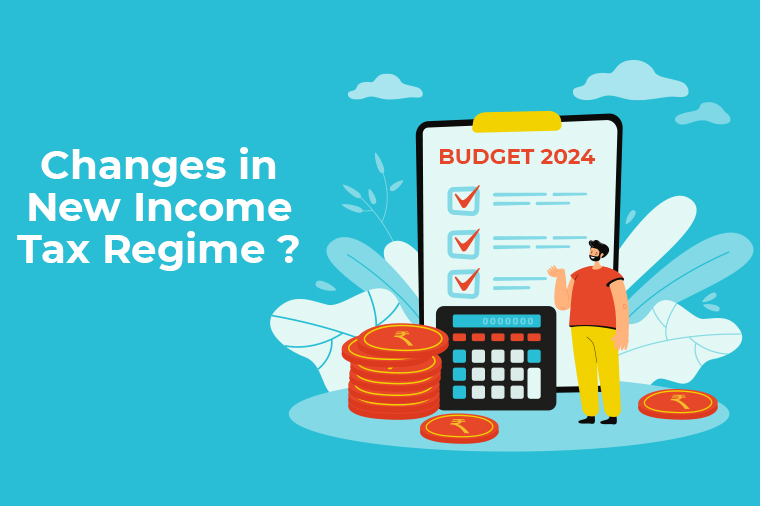Impact of Budget 2024 on Income Tax: Will There Be Increases Instead of Cuts?
As the fiscal year progresses, taxpayers across the nation are bracing for the unveiling of Budget 2024, which might shift the tides from the anticipated tax cuts to potential increases. Amidst the economic fluctuations and recovery efforts post-global disturbances, the government faces the herculean task of balancing growth stimulation with fiscal consolidation. This article delves deep into the prospective changes, the reasons behind them, and their broader implications.
Background of the Fiscal Scenario
Budget 2024 comes at a time when the global economy is still stabilizing from the impacts of health crises, geopolitical tensions, and trade disruptions. Domestically, India has seen a moderate recovery trajectory, but the path has been fraught with challenges such as rising inflation and a burgeoning fiscal deficit. These economic factors set a complex stage for the Finance Ministry as it drafts the upcoming budget.
The Prelude to Potential Tax Increases
Contrary to the popular hope for tax reductions to boost disposable income and consumer spending, there are strong indicators that the government might lean towards increasing tax rates or modifying slabs to increase revenue. Experts argue that these measures could be deemed necessary to address the fiscal deficit, which has widened due to increased government spending during the recovery phase and subdued tax collections during economic slowdowns.
Detailed Analysis of Expected Changes
- Rationalization of Tax Slabs: One of the anticipated moves could be the rationalization of existing tax slabs, potentially increasing rates for higher income brackets. This move would aim to make the tax system more progressive, wherein the higher earners contribute a greater share to the national exchequer.
- Reduction in Deductions and Exemptions: To widen the tax base and enhance revenues, the government might reduce the scope of various deductions and exemptions currently available under the Income Tax Act, such as those under Section 80C or for housing loans.
- Introduction of New Taxes or Cess: There is also speculation about the introduction of new cesses or surcharges specifically targeting luxury consumption or high-net-worth individuals, as a means to boost revenues without heavily impacting the middle and lower income groups.
- Corporate Tax Adjustments: While the corporate tax rates have been relatively favorable to foster investment, there could be adjustments in the form of reduced incentives or the rollback of some benefits for specific sectors that have recovered from the economic downturn.
Reasons Behind Potential Tax Increases
- Fiscal Consolidation: The primary driver for a tax increase would be the need for fiscal consolidation. The government needs to stabilize its finances and reduce the fiscal deficit to sustainable levels.
- Funding Developmental Projects: Increased taxes could provide the necessary financial resources for developmental projects, including infrastructure, education, and healthcare, which are pivotal for long-term growth.
- Social Equity: Higher taxes on the affluent sections of society can be seen as a step towards reducing income inequality, ensuring that the wealthier population contributes more towards nation-building.
Public and Expert Reactions
The possibility of tax increases has elicited mixed reactions:
- Economic Analysts: Many experts feel that while tax increases are not ideal, they may be necessary given the current economic constraints. "It’s a tough pill to swallow, but might be needed to maintain economic health," commented an economic analyst from a leading think tank.
- Business Community: The corporate sector is apprehensive about potential tax hikes, fearing they might dampen the investment climate and hinder growth.
- General Public: For the general populace, especially the middle class, the prospect of higher taxes is worrisome as it could reduce their disposable income, thereby affecting their standard of living.
Global Comparisons
Internationally, several countries are grappling with similar fiscal challenges. For instance, in the UK and Canada, governments have also resorted to tax hikes to cover the deficit caused by pandemic-related expenses. These examples provide a comparative perspective on how different nations are balancing tax policies to manage economic health post-crisis.
Looking Ahead
As Budget 2024 approaches, the anticipation and anxiety among different sectors of the economy are palpable. The government faces a daunting task of drafting a budget that not only ensures fiscal prudence but also fosters an inclusive growth environment. The decisions made will have far-reaching consequences, potentially reshaping the economic landscape of the country.
In conclusion, while tax increases may not be the most popular measure, they could be an essential part of the strategy to ensure economic stability and equitable growth. As we move closer to the budget announcement, all eyes will be on the government’s fiscal roadmap for the coming year, which will undoubtedly play a pivotal role in shaping India's economic trajectory in the post-recovery era.




